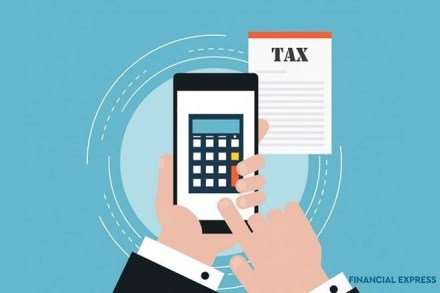The direct tax dispute resolution scheme (Vivad se Vishwas) would not cover certain kinds of disputes, including those pending before Authority for Advance Ruling (AAR) and cases with tax demand above Rs 5 crore arising from search and seizure operations, the Central Board of Direct Taxes (CBDT) clarified on Thursday.
Further, it said that disputes related to wealth tax, security transaction tax, commodity transaction tax and equalisation levy are also out of scheme’s ambit.
The board had earlier clarified that the scheme barred disputes related to undisclosed foreign income/asset, assessment or reassessment made on the basis of information received under DTAA and where prosecution for any offence under the Indian Penal Code/Prevention of Money Laundering Act/Prohibition of Benami Property Transactions Act has been instituted or a person who has been convicted under the Acts.
It further said that if the tax arrears include tax on issues that are excluded from the scheme, such cases are not eligible to file declaration . “There is no provision under Vivad se Vishwas to settle part of a pending dispute in relation to an appeal or writ or SLP for an assessment year. For one pending appeal, all the issues are required to be settled and if anyone of the issues makes the declaration invalid, no declaration can be filed,” the Board said in a list of frequently asked questions (FAQs).
On the eligibility of cases where prosecution has been instituted against the assessee, CBDT said that such disputes can’t avail the scheme. “However, where only notice for initiation of prosecution has been issued with reference to tax arrears, the taxpayer has a choice to compound the offence and opt for Vivad se Vishwas,” it added.
The dispute resolution-cum amnesty scheme seeks to cut down on nearly 4.8 lakh tax disputes involving an amount of Rs 9.32 lakh crore (up to November 30, 2019) by giving the taxpayers the facility to escape interest on the disputed tax amount and any penalty. All direct tax related cases pending before the Commissioner (Appeals), Income Tax Appellate Tribunal, high courts or the Supreme Court as on January 31, 2020 are eligible for the scheme.
Lok Sabha passed the relevant Bill on Wednesday.
Naveen Wadhwa, DGM at Taxmann, said: “The clarifications issued by the Board answer a lot of queries and leave some unanswered. On the aspect of transfer pricing, it has been clarified that secondary adjustment as provided by section 92CE would be applicable even if the taxpayer wants to settle his transfer pricing disputes. The board has also clarified that deductee shall be entitled to get the credit of TDS if deductor has settled any TDS dispute under this scheme. Since credit shall be available to deductee from the date of settlement of the dispute, interest for the period, before the credit is allowed, shall be charged from deductee.”
Rakesh Nangia, chairman at Nangia Andersen Consulting, said that both taxpayers and tax authorities would be constrained by time as the former has to opt for the scheme and make payment of necessary taxes, which would then be followed by evaluation of all the applications and issue a final order granting necessary certificate by tax authorities by March, 31 2020.
“Moreover, considering that the scheme is yet to be passed by both houses of Parliament and notified after President’s assent and necessary forms will be notified only after that enabling taxpayers to make necessary applications, it leaves even lesser time for the taxpayers. Thus, it would be challenging both for taxpayers as well as tax authorities to implement this scheme on/ before 31st March 2020, especially considering other financial year closure compliance,” he added.
